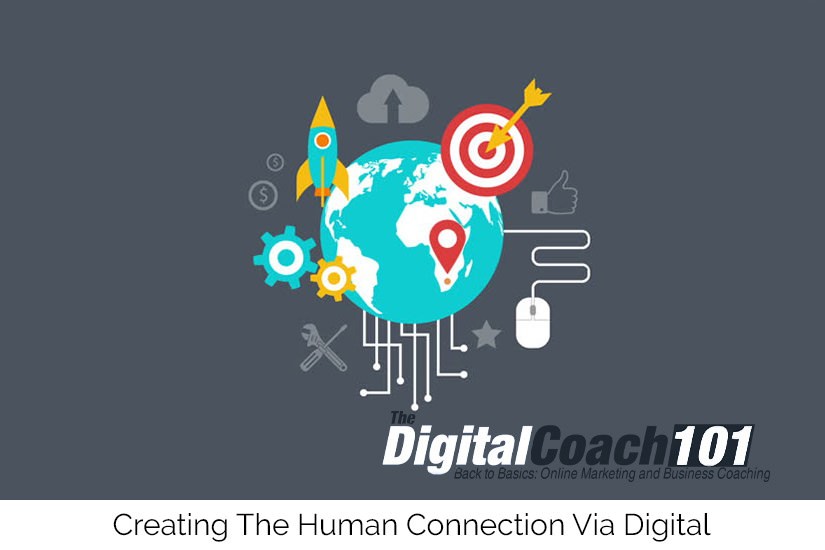How Kenya is Surfing the Internet Marketing Wave
To most people who don’t live in Kenya, this diverse, beautiful and fascinating country is best known for its incredible wildlife parks and tropical paradise coastline. The bookworms among us will also know it as one of the favoured haunts of Nobel Prize-winning author, Ernest Hemmingway.
Kenya features prominently in several of Hemmingway’s short stories, as well as in his non-fiction book, Green Hills of Africa. The echoes of his passionate affiliation to the country can still be found today at the Hemingways Hotel in Nairobi, and Hemingways Watamu hotel in Turtle Bay.
And of course, who can forget the magical performances from Meryl Streep and Robert Redford in the movie Out of Africa, which tells the story of Danish author Karen Blixen’s deep and abiding love for Kenya. The life of one of the country’s most well-known adoptive daughters is encapsulated in the Karen Blixen museum in Nairobi, which is still a popular spot for locals and tourists alike.
Back To The Future
The Kenya of today has come a long way since then. Shrugging off the shackles of its colonial past, and not content to rely mainly on its tourist trade, modern-day Kenya is vibrant and dynamic. Add to this a thriving entrepreneurial spirit, and it all bodes very well for the continued growth and prosperity of this exciting country.
Kenya has the largest GDP of any country in East and Central Africa, and is growing exponentially in terms of both business opportunities and population. In the past 30 years, Kenya’s population has tripled, rising from 16 million in 1980 to over 47 million today. Running parallel to this is a corresponding increase in the need for employment. Major industries include mining, industrial manufacturing, agriculture, tourism and energy. But it is in the small and medium-sized business sector where the biggest growth – and therefore employment – opportunities occur.
According to a report from Deloitte’s, Kenya’s GDP sits at around 6.4 percent, with an economy that’s set to grow by an average of 6.1 percent between 2016 and 2020. This makes it a very attractive country for both local and foreign investors, offering a welcoming and receptive landscape in which Kenyan businesses can grow and thrive.
The Challenge of Change
As with any developing country, being an entrepreneur in Kenya is not without its challenges, but these are all part of the excitement of being part of what is undeniably a fast-growing and loaded-with-potential place to do business.
Kenya’s economy is still young, and access to the market is limited. Rapid changes in technology are encouraging, but there are not enough skilled people to take advantage of it just yet. The cost of obtaining credit, especially for an SME, can be quite high, caused mainly by outdated local finance products and inefficient processes for registering collateral. The financial institutions in Kenya are working to try and improve this situation.
A workable infrastructure is important for your business to be sustainable. The World Bank’s Logistic Performance Index (LPI) recently ranked Kenya 74th out of 160 countries in terms of Infrastructure development. Kenya is working hard to improve its infrastructure, with recent upgrades to roads such as the Thika Super Highway, and the construction of the Standard Gauge Railway.
None of these challenges are insurmountable, and none should stand in the way of motivated entrepreneurs getting their businesses up and running. But, forewarned is forearmed, as they say in the classics, so being aware of potential challenges means you can strategically plan for, and devise ways to work around them.
Bridging The Digital Divide
One thing that is very encouraging for Kenyan businesses – especially from a marketing perspective – is that Internet and mobile access has been rising steadily across the whole of Africa in recent years. Increased availability, improved connectivity (thanks to better infrastructure) and reduced costs have all contributed to more and people becoming active online.
Traditional marketing media have become oversubscribed and expensive. Companies, especially startups, are ready to embrace cheaper, more effective options for reaching a highly segmented audience. Online marketing has low entry barriers and extensive tracking and analytics tools, making it easy to monitor and quantify your return on investment.
Kenya is hailed as a leader in ICT across the African continent. Many leading global Internet brands now operate in the country, and Google has its Africa headquarters in Nairobi.
According to a report from Thinkroom, Internet penetration in Kenya is currently around 47 percent, while the ratio of cellular subscriptions is 74:100. These figures are encouraging, and are only going to get better as the prices of smartphones and tablets continue to come down.
Wandia Gichuru is the co-founder, MD and CEO of Vivo Activewear, a chain of clothing stores that has become one of the most instantly recognisable fashion brands in Kenya. It was named Kenyan Fashion Brand of the Year in 2016, and Wandia has some excellent advice on leveraging Kenya’s growing mobile and internet population to promote your business:
“We do a lot of brand equity awareness through social media,” she says. “When people are familiar with your brand, even if they have never bought from your shop, one day they might. You are building brand equity for the future. Social media has helped open up doors for companies that could never have reached people that way before.”
And of course, as we know, marketing has always been about connecting with people where they are now, ie; online!
The Rise and Rise of Digital Marketing in Kenya
Kenya is investing large sums into transportation, energy and telecommunications. International companies, too, are rapidly realising the potential of this strategic country. Google recently invested $700 million in a wind power and grid infrastructure in Kenya to help accelerate the deployment of renewable energy in Africa.
The growth of high-speed internet and a time zone compatible with Europe and Asia make Kenya a very exciting country for entrepreneurs.
According to Kenya’s Communications Authority, over 90 percent of all Internet access in Kenya is mobile. That means there are over 38 million active mobile users who can access the Internet at any time. Wouldn’t you love them to find your business while they’re doing so?
Social media is huge in Kenya – Facebook has over five million users, making it the leading social media platform in the country. This provides an awesome opportunity for entrepreneurs to leverage this popular medium in their social marketing efforts. The problem comes, however, when businesses are tempted to only use Facebook, thinking that if it reaches five million people, how bad can it be?
It’s not bad, but it’s not all good either. Facebook, along with other social media platforms, make it almost compulsory to either buy ads on their forums, or boost posts, both of which cost money that many start-ups may not have. This is where it becomes increasingly important to diversify your digital marketing strategy so you can build your audiences organically as well, without having to simply “rent” them.
Making The Most Of Metrics
Many Kenyan SME’s, who might be unfamiliar with the ways in which digital marketing works, still place a lot of importance on how many fans you have on Facebook, how many followers you have on Twitter and how many hits your website is getting. While all these metrics undeniably still have value when it comes to measuring the performance of a digital marketing campaign, what’s really important is the level of engagement.
Digital engagement is a very effective way of finding out just how effective your digital campaign is. It allows you to see how many qualified leads you generated, or how many conversions you achieved. It’s also possible to see where in the process a prospect converted to a customer, which is immeasurably important information for any business owner.
In a blog by Kenyan digital marketing agency Dotsavvy, the author writes: “Digital marketing is a relatively a new concept, and most of the business here in Kenya have yet to adopt it. (But) the digital marketing revolution in Kenya has begun. It is a marketing storm forming.”
Pamoja Media agrees: “Online communities (in Kenya) are reaching maturity, shifting from a ‘fun and hanging out’ platform to more decisive and impact oriented gatherings. Decision-making and discussions have extended from politically oriented conversations to products, services and brands. Budgets for online PR and monitoring are slowly increasing now that executives open up to the fact that these conversations are growing. This provides an avenue for brands to lead conversations and dominate their markets.”
The Perfect Combination
A recent report released by the Gem Consortium states that Africa is the continent with the most positive attitude towards entrepreneurship. Almost 80 percent of working-age adults surveyed believed that entrepreneurs are admired in their societies, and just over 40 percent had intentions of starting their own businesses.
Kenya has a growing number of entrepreneurs eager to embrace the opportunities that owning their own business brings, and they are ready and waiting to take advantage of everything digital marketing can do to help grow their business.
If you’d like to know more about how the right digital marketing strategy can help your business, chat with the experts at Digital Coach. We’re as excited about the opportunities in Kenya as you are, and we make it our business to grow yours.












